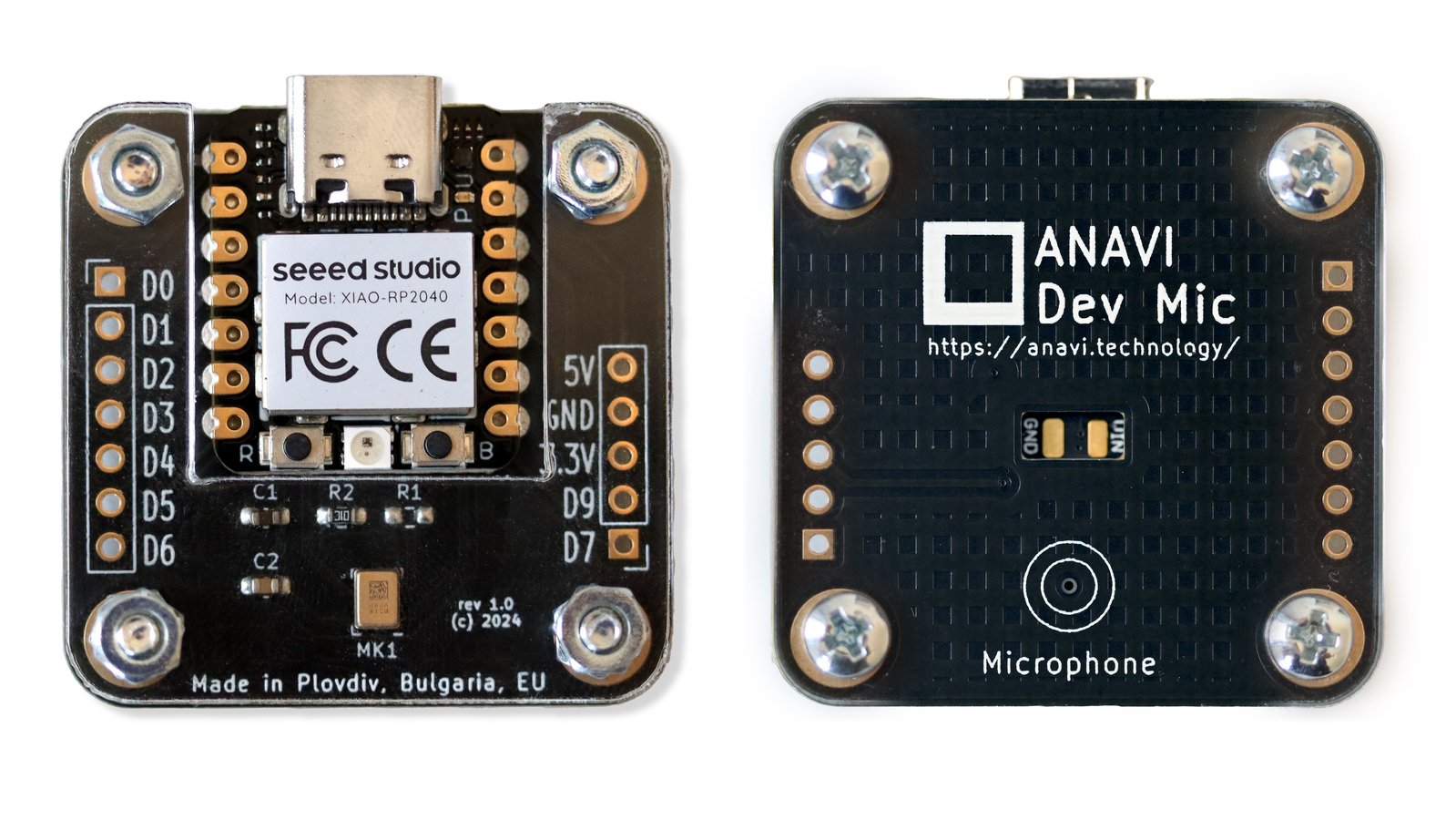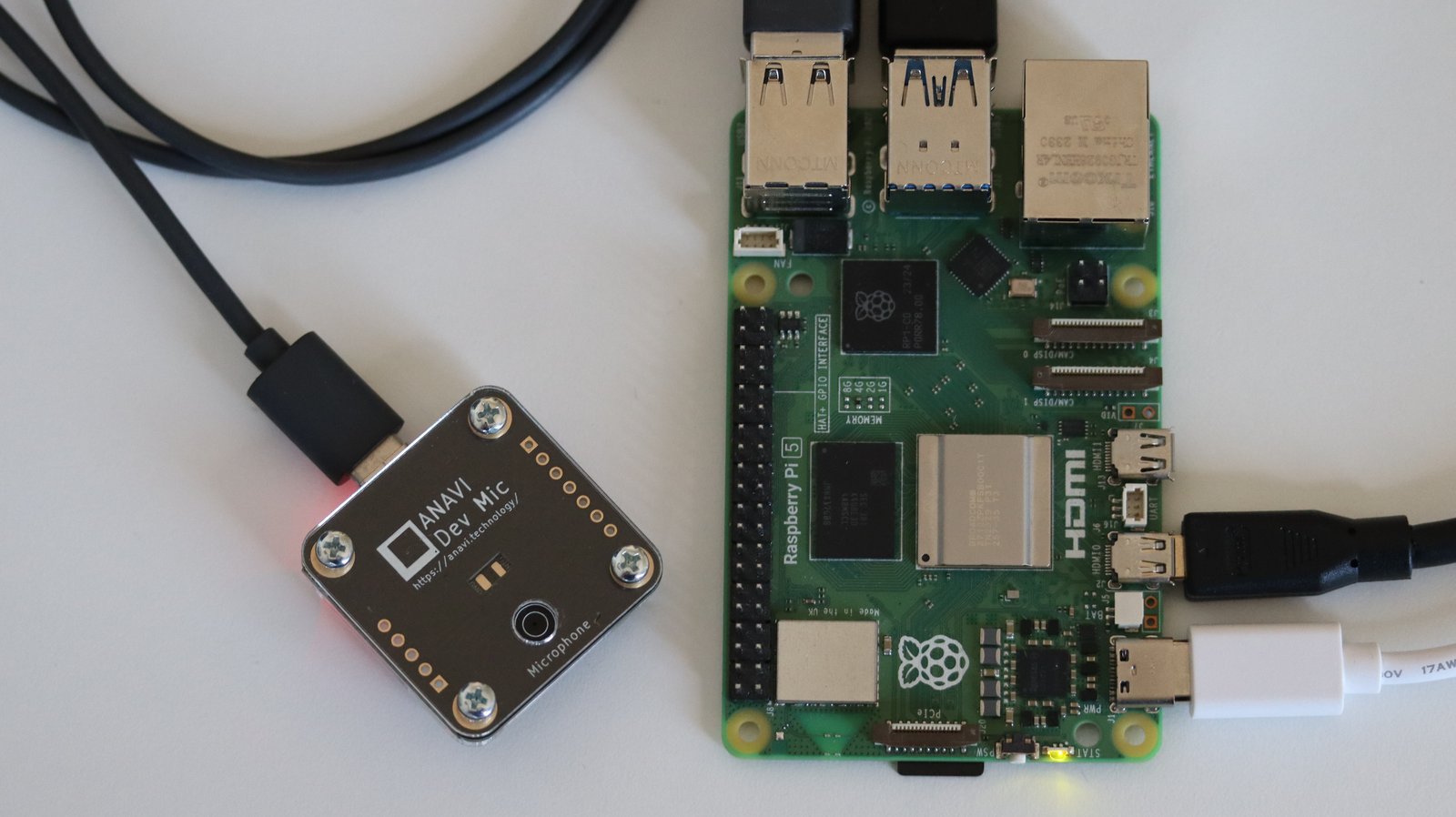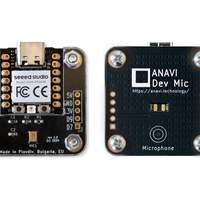Project update 6 of 9
Getting Started with the Raspberry Pi Pico SDK on ANAVI Dev Mic
by ANAVI TechnologyIn previous project updates, we’ve explored the hardware of the open-source ANAVI Dev Mic, our USB-C computer microphone. After the crowdfunding campaign ends, we will promptly ship all kits, with each microphone pre-flashed with firmware so it works right out of the box. As an open-source project, you are free to modify or build the Dev Mic firmware from scratch. It is based on the "Microphone Library for Pico" created by Sandeep Mistry on behalf of the Arm Software Developers team. It leverages the PIO, DMA, and USB capabilities of the RP2040 microcontroller in Raspberry Pi Pico and, of course, in the ANAVI Dev Mic. To build or extend the code, you’ll need to use the Raspberry Pi Pico SDK.
The Raspberry Pi Pico C/C++ SDK provides essential libraries and tools for writing C and C++ programs for the Raspberry Pi Pico, Pico 2, and other devices with RP2040 or RP2350 microcontrollers, such as the XIAO RP2040 on ANAVI Dev Mic. It includes drivers, hardware abstraction layers, and utilities for interacting with peripherals like GPIO, I2C, and SPI, allowing developers to compile and flash custom firmware. You can install the SDK via Visual Studio Code and the Raspberry Pi Pico extension or directly through the command line, even on a Raspberry Pi single board computer, as shown in this video using Raspberry Pi 5 with Raspberry Pi OS.
Follow the steps below to install the SDK and build the firmware from scratch on a Raspberry Pi single board computer or a PC running a Linux distribution:
- Download the Raspberry Pi Pico C/C++ SDK from GitHub:
cd ~
git clone https://github.com/raspberrypi/pico-s...
cd pico-sdk
git submodule update --init
- Install the Raspberry Pi Pico C/C++ SDK dependencies:
sudo apt update
sudo apt install cmake gcc-arm-none-eabi build-essential
- Set the
PICO_SDK_PATH:
export PICO_SDK_PATH=/path/to/pico-sdk
- Download the firmware for ANAVI Dev Mic based on "Microphone library for Pico" from GitHub:
cd ~
git clone -b anavi_dev_mic https://github.com/AnaviTechnology/microphone-library-for-pico
- Create the build directory, run
CMake, and after that, runmake:
cd microphone-library-for-pico
mkdir build
cd build
cmake .. -DPICO_BOARD=pico
make
- To flash the firmware, press and hold the BOOT button on the XIAO RP2040 located on the back of ANAVI Dev Mic. While holding the button down, connect the microphone to your computer via a USB-C cable. A new disk drive will show up. Copy the compiled
.uf2firmware file, located atbuild/examples/anavi_dev_mic/anavi_dev_mic.uf2, onto the drive. Once the file is copied, the board will automatically reboot with the new firmware installed.
There’s still time to support our campaign and be among the very first owners of ANAVI Dev Mic!





